This is a short story written by Chloe Cohen, who spent 4 months for her academic internship with the Ava Guarani people in Southern Brazil. She describes the connections between daily practice of cultural traditions and spirituality and the importance of ‘keeping a clear and clean mind’ within a socio-political context which doesn’t favor the traditional ways.
Kuña avaitéva oreko hendive ñe’ưpoty‘
‘Every indigenous woman brings poetry within her’ was translated by the spiritual leader (Xamoi Vicente),’s wife, Basilia Takuaarokaju. I spent most of the days with her, whether taking care of the house, the kitchen, smoking pytinguaa (the pipe) or dancing and singing in the prayer house. One morning, while we were in the kitchen preparing reviro (traditional guarani flour dish), I asked Takuaarokaju, what does it mean to ‘be’ an indigenous woman, from her own perspective. Naturally, it is a rather complex question that covers many subjectivities and does not have a single or “correct” answer. When asking this question, there was a long-lasting moment of silence; Takuaarokaju finally replied that- to be an indigenous woman is to be clear and clean in her mind. That was her answer. In my view, this response was very profound and complex and revealed an ethical principal present in Guarani culture; the connection between mind and soul expressed by Takuaarokaju is linked to the daily practice of prayer, singing and dancing, these being the foundations of Guarani spirituality.
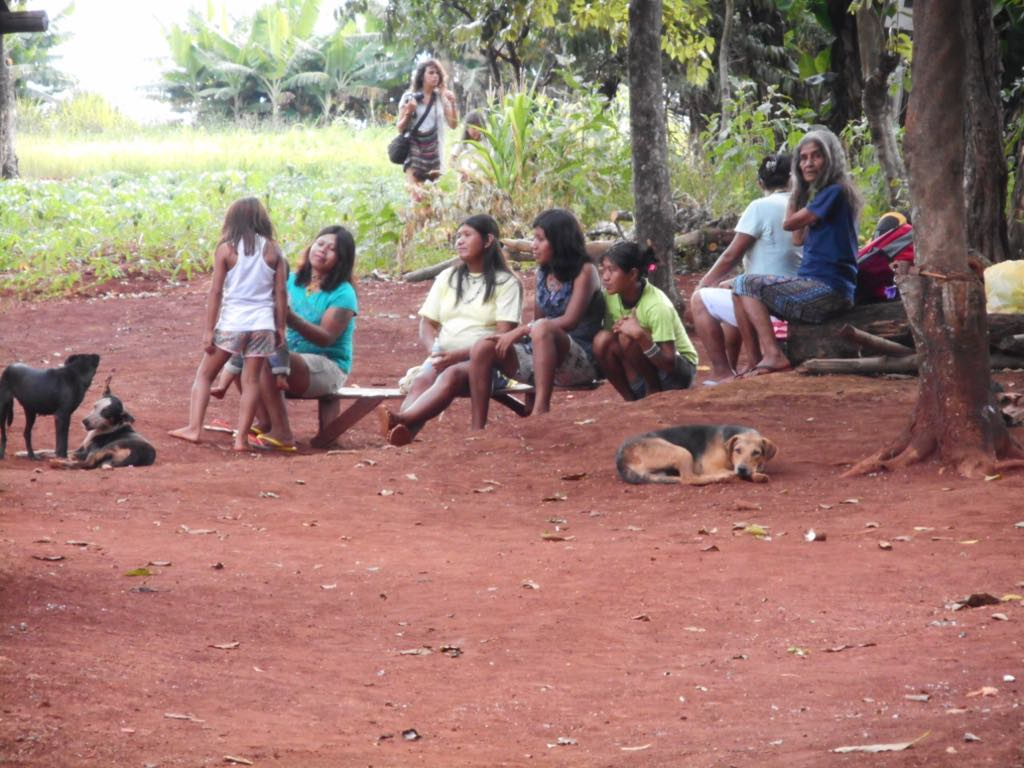
Picture taken by Mario Ramao; “Projeto: Educomunicacao e Transculturalidade Guarani no Oeste do Parana”, Sao Miguel
do Ocoy; Project: Education & communication and Guarani Transculturality in the western region of Parana,
These practices are part of a spiritual preparation in the quest of yvy ma’eru, the land without evil. Che aguata Yvy ma’eru– literally translated by – I walk towards the land with no evil. This land is said to be simultaneously localized between east and the west; but Takuaarokaju confessed to me that in order to encounter the land with no evil, the path is located inside each of us; and it is through prayer, dance and singing that the ava guaranis have managed to reach spiritual ascension, to be indigenous and be able to take care of mother earth. Thus, we realize that the roots of Ava Guarani culture lie in the house of prayer Opy, where they are able to practice the singing, the dances and the prayers which form the basis of the Ava guarani way of life – Teko – in Ava guarani. The practice of their Teko is their basis of resistance and daily fight to live in harmony. Tekoha means the land, the earth, the space in which they are able to live in harmony with nature and practice their spirituality. Simultaneously, without Tekoha there will never be Teko and vice versa.
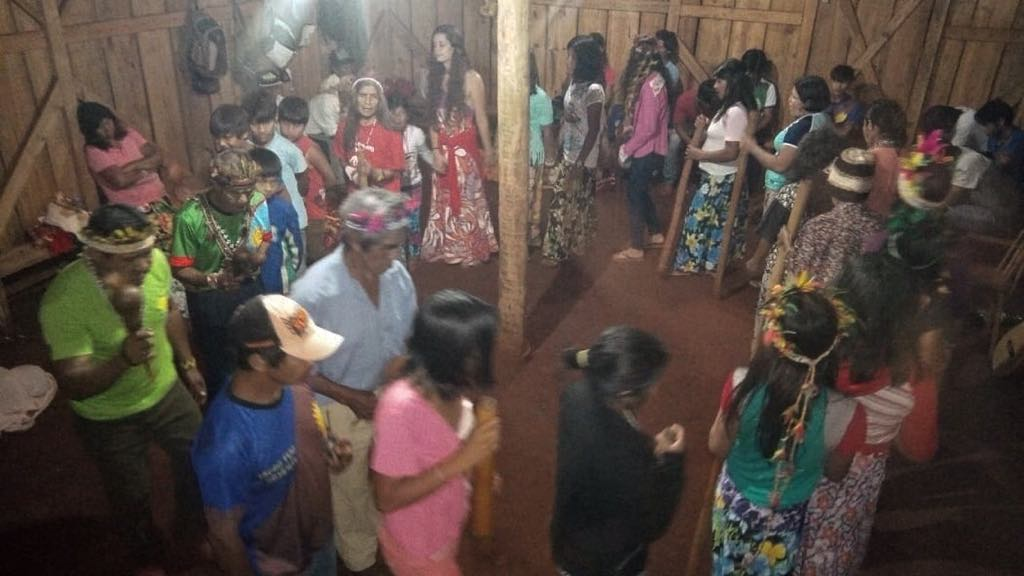
Picture taken by Mario Ramao, Casa de reza- Opy– prayer house, Tekoha Anetete, Diamante d’Oeste, Parana, Brazil.
Current affairs in the Parana region and how it affects Ava Guarani people:
The Ava Guarani people have had a rather tumultuous and difficult history since the arrival of Portuguese settlers and missionaries in early fifteen hundred. Particularly in the western region of Parana, southern Brazil, where the Ava Guarani have suffered innumerous expulsions from their own lands; this started during the XXth century with the advance of agricultural borders and the construction of the Hydroelectric Itaipu in 1973- which caused the flooding of several indigenous lands in the surroundings. The process of colonization in Parana resulted into the expulsion of numerous indigenous people, land robbery and slavery of the guaranis. In this manner, the Ava Guarani have developed a strong sense of union and intense resistance based on collective memory against the colonial exploitation and agricultural farmers who continue- until today – to prejudice indigenous lives. Today, the fight for land between the farmers and the indigenous is even more drastic due to the intensification of agricultural practices and delegitimization of indigenous rights. For almost 10 years, Ocoy’s leaders (from the community located in Sao Miguel do Ocoy, Parana) have been fighting for the expansion and demarcation of the territory in question.
The territorial struggle is a huge one but not only of the fights the Ava Guarani undertake, they are also highly affected by discrimination from the rest of Brazilian society. Innumerous anti-indigenous campaigns were promoted by political parties, alongside confrontations with farmers and ruralists, which resulted in a number of murders of indigenous peoples in the region. The fight for land for the Ava guarani has consequences on the growing gaps in education of traditional values and the ever-increasing onset of modernity.
The research I conducted during a period of 4 moths took place in the Tekoha Anetete in the municipality of Diamante d’Oeste, in Parana. I resided at the house of the spiritual leader Xamoi Vicente and his wife Basilia Takuaarokaju. It was several months of intense experience and learning of the Avá-Guarani culture and language; the research aimed at studying ‘How have Brazilian indigenous communities maintained certain tables of traditions (referring to the moral table of values guiding communal activity on a cultural basis) with regards to cultural changes in time, and how can such cultural traditions be preserved in future educational integration projects with indigenous communities? A case study with the Ava Guarani people of the community Añetete* in Diamante D’Oeste (PR) “.
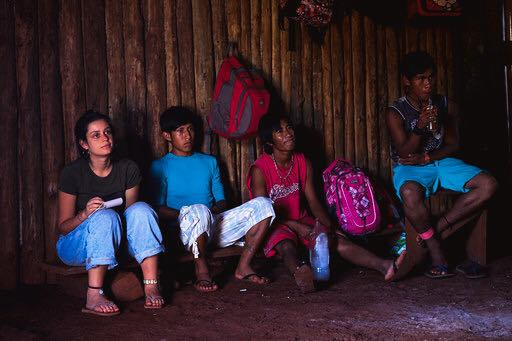
Picture taken by Rafael Fonseca, student at Unila, Tekoha San Miguel do Ocoy, Parana, Brazil
*The territory of Añetete is an area purchased by the Hydroelectric dam Itaipu, as compensation of land over the territorial loss of the construction of the Itaipu Binational Hydroelectric. It is not a demarcated territory; it is a reserved area that resulted from a camp started in the second half of the 90’s. The area has 1700 hectares, to which were transferred about 40 indigenous families from the community Ocoy.
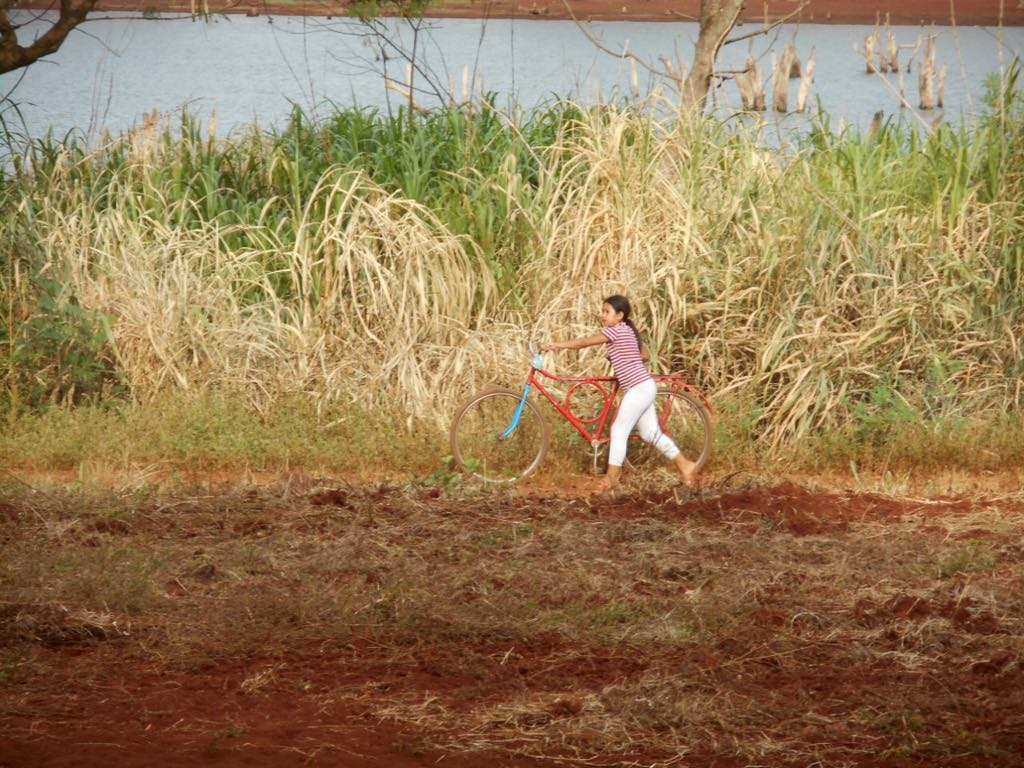
Picture taken by Mario Ramao; “Projeto: Educomunicacao e Transculturalidade Guarani no Oeste do Parana”, Sao Miguel do Ocoy; Project: Education & communication and Guarani Transculturality in the western region of Parana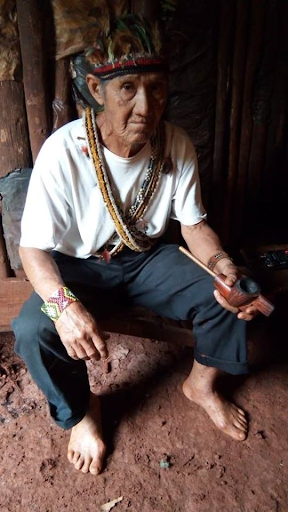
Picture taken by Mario Ramao, casa de reza- opy – Xamoi Geronimo Kunumi Vogado at the prayer house, Tekoha Anetete, Diamante d’Oeste, Parana, Brazil,
